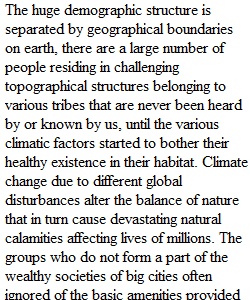


Q 1. What is your faculty-approved global issue/problem?
Q 2. How will you select the vulnerable and disenfranchised groups (and corresponding dominant populations) affected by this issue?
Q 3. Draft a working thesis for your Diversity and Ethics paper that reflects the ethical implications of your issue for diverse populations
Q 4. What is your own cultural perspective on the issue and the chosen groups?
Q 5. How do the cultural issues studied in The Global Workplace, Part 1 influence the competing populations?
Q 6. How do the ethical issues studied in The Global Workplace, Part 2 affect the individuals and communities you have identified
Q 7. Which ethical theories are relevant to your topic? Why do you think so?
Q 8. Briefly note problem-solving and decision-making examples from the research you’ve done. Explain why you consider them ethical or unethical.
Q 9. Analyze evidence of social responsibility in the decisions and actions of the dominant cultural group.
Q 10. What will you say about how and why Hofstede’s Cultural Values Framework relates to the populations examined in this paper?
Q 11. What are the competing ethical perspectives? How will you use ethical theory and reasoned evidence from cited sources to substantiate your assessment
Q 12. Based on the work you’ve developed thus far, review and revise your working thesis.
Q 13. From your work answering the items above, summarize ethical issues, policies, and action strategies that might result in more equitable treatment and are worthy of further study.
View Related Questions